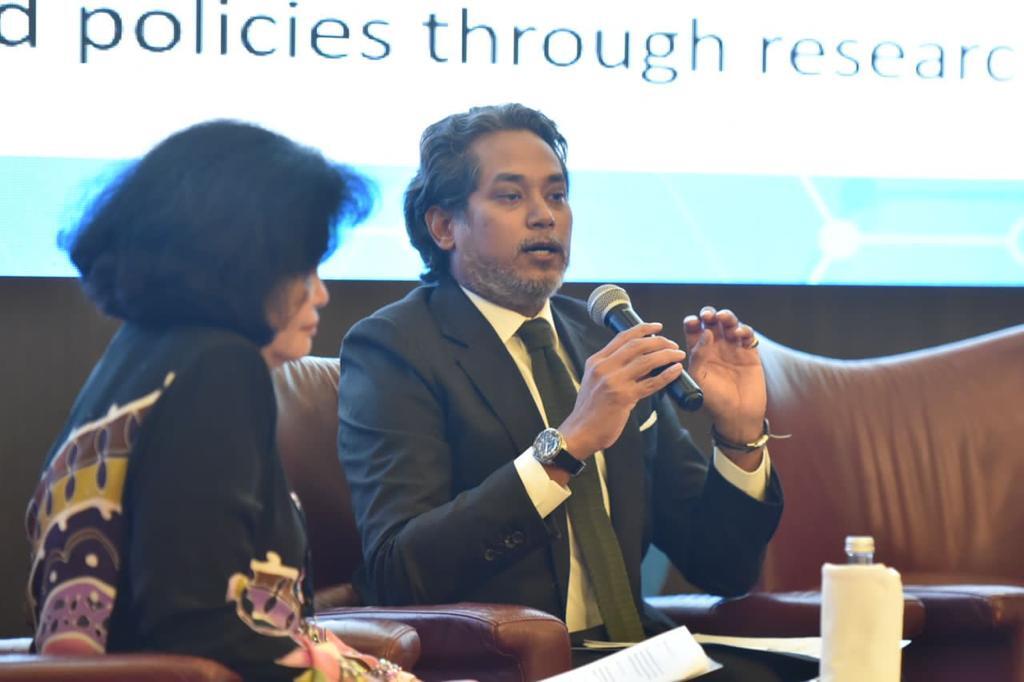KUALA LUMPUR, August 17 – Khairy Jamaluddin has urged all ministries to address the social determinants of health in their budgets and policies to ensure good health outcomes beyond the health care sector.
The health minister compared this to gender or climate change mainstreaming, where all ministries must account for how their budgets specifically address women and climate change issues.
“My ideal is that when we come around to the budget cycle, every ministry – just as every ministry accounts for gender-based budgeting, what are they doing for gender equality, just as every ministry now is accounting for climate change – they must also account for what they’re doing for health outcomes, so that they can say, this is my ministry’s contributions to health outcomes,” Khairy told a policy dialogue on the future of health care yesterday here at the Health Policy Summit 2022 organised by the Ministry of Health (MOH).
He stressed that 80 per cent of health outcomes are determined by socio-economic and environmental factors, with only 20 per cent from the domain of the health care system. As such, the government needs to address these social determinants of health.
“It’s very easy for the Ministry of Health, for instance, to lecture people on how to live better, on how to eat more healthily, without understanding the obstacles and the limitations that people have on wanting to live a healthier life.
“Of course some of it can be helped through promotive campaigns and behavioural science, but there are actually some very real structural obstacles and barriers for people to live healthy lives. And that’s where the Ministry of Health really needs to work with all ministries in putting health in all policies.”
A study by Stanford University published in 2017, which used smartphones to track the physical activity level of hundreds of thousands of people from 111 countries, found that Malaysia ranked the third lowest in terms of average daily steps counted.
Stanford researchers found that in countries with higher levels of obesity, people were more likely to walk very little, dubbing this phenomenon “activity inequality” to evoke the well-established concept of income inequality.
“Somebody looking at this from the view of social determinants of health and social justice will say that well, that study measured steps and obesity, but it did not reflect the fact that Malaysia and Malaysian cities are not very walkable cities,” Khairy said, commenting on the Stanford research.
“We do not have urban planning and a built environment that promotes a healthy lifestyle. We do not have transportation networks that promote a sustainable healthy lifestyle. It’s been designed so that you are sedentary and dependent on your car as much as possible.”
He also pointed out that nutritious food is expensive and some people are unable to exercise because they work multiple jobs.
Beyond Epid Models, Public Health Specialists As Social Justice Warriors
Khairy urged public health physicians to look beyond epidemiology models and to go into the community to understand why diseases occur by taking into account social, economic, and environmental factors.
“They’ve forgotten that the real basis of public health is social justice,” he said. “Public health specialists are actually your social justice warriors; you’re not sitting behind a statistical model of how disease is spread only.”
During the Q&A session at the dialogue session, Galen Centre for Health and Social Policy chief executive Azrul Mohd Khalib asked how Malaysia could improve understanding of human rights within the health care system to ensure that health care is always guided by human rights principles.
“Much of the work that we do in health is embedded within human rights principles, and sometimes we forget that, and we forget how human rights guide the work we do and the framework that guides our actions, in terms of how we engage with patients and also the community,” Azrul said.
Khairy responded by saying that public health officers must practice four letters – JTKO – which stands for jaga tepi kain orang (busybody).
“Public health officers, especially health officers in the field, must be the biggest busybodies in the district health office’s operations room,” he said.
“Demand for human rights for clean water, demand for human rights for clean air, demand for human rights for access to education, because all of these things have an impact on health outcomes.”








